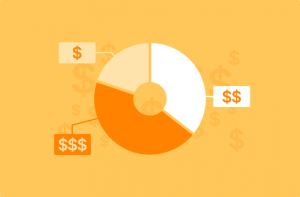10 Business Startup Costs Business Owners Need to Know
Stepping into entrepreneurship is exciting, but it’s also important to have realistic expectations about business startup costs. Budget calculations are essential for determining your true startup costs, including one-time expenses and ongoing expenses.
Calculating your startup costs can help you generate reports, file taxes, make predictions and forecasts, and prepare for unforeseen costs. This article will cover 10 business startup costs business owners need to know.
-
Equipment
Most businesses need equipment to get up and running. This is typically a one-time cost, though it can include monthly payments if you choose to lease your equipment.
Retail businesses may need to purchase inventory and pay for store locations’ buildout costs. Many retailers also sign long-term leases and are committed to making rent payments even if the business isn’t profitable.
Other startup expenses can include communications and collaboration technologies, business-related licenses and permits, professional services such as a for-hire lawyer or accountant, marketing and advertising, and a website to reach customers. Researching online resources that provide data from surveys can be helpful to estimate both one-time and ongoing startup costs. This may help reduce your risk of running out of money before you can begin turning a profit.
-
Insurance
Many types of insurance are needed for a business startup. Depending on the industry, this can include insurance for equipment and inventory, liability, and more. A business checking account is also needed, which allows a startup to make deposits, write checks and manage debit transactions. Popular payment processing fees, such as those charged by PayPal and Stripe, are also an ongoing expense.
Getting a handle on business startup costs is vital for new entrepreneurs. Understanding these expenses helps owners calculate how much money they’ll need to request when pursuing funding and estimate when their company will break even. The best way to accurately determine startup costs is by conducting thorough research that involves gathering information about other businesses in the same industry and analyzing their expenditures. Some of these expenses are recurring, while others are one-time payments.
-
Rent
Many business startup costs are recurring, meaning they need to be paid on a monthly basis. This includes things like rent, utilities, and software subscriptions. However, there are also one-time expenses, such as filing patents and hiring a lawyer to help you incorporate.
Depending on the type of business, there may also be other costs, such as security deposits and equipment. It’s important to know these costs before launching a business.
You can deduct startup costs in the year your business launches, which can lower your taxable income. However, it’s also important to have a financial cushion in case unexpected expenses occur. For example, if natural disasters or other forces beyond your control cause a shift in customer demand, you’ll need to be prepared. This might mean increasing your business’s budget to cover the additional costs.
-
Employees
Many of the expenses listed here are recurring, meaning they’ll need to be covered on a monthly basis. Others, like the incorporation fee or office furniture, are considered one-time costs. It’s recommended that you calculate your startup costs and add a cushion of several months in order to be ready for when you expect to see revenue or funding.
The amount you end up spending will vary by business type and industry. However, a few factors are consistent for all startups: conducting thorough research and planning ahead help to mitigate some of these costs. Using alternatives, such as working from home or renting space at a coworking space, can also reduce the overall cost of starting a business. NerdWallet’s Business Startup Costs Calculator can give you a rough idea of how much you might spend upfront.
-
Marketing
Business owners must have a firm understanding of startup costs to attract investors and estimate when they’ll turn a profit. By combining one-time expenses with ongoing monthly expenses, entrepreneurs can accurately calculate the initial total startup cost of their venture.
Many small business startup expenses are one-time payments, such as the fees to file patents or have a lawyer assist with company formation documents. Others are recurring, such as utilities, rent and subscription fees for required software.
By using a calculator or tally sheet, business owners can develop a formal list of startup costs to present to potential investors and lenders. Providing this data allows them to compare expected costs with projected revenue and determine whether their venture is worth the investment. This can also help them avoid excessive debt accumulation and maintain financial stability during the startup phase.

-
Legal
Getting started with a new business requires careful planning. It also includes considering the company’s legal needs. Failing to do so can result in costly mistakes for the company down the line.
Deciding to start a new business can be exciting and frightening at the same time. You may worry about if your business will be profitable in the long term or how much it will cost to get started.
Many startup costs are recurring expenses, such as insurance or office furniture. Others are one-time expenses, such as incorporating fees. In addition, some businesses will require federal or state licensing. The type of license required depends on the industry and can vary by state. Generally, the fees are low. Incorporating a business usually costs less than $300. Some businesses may need professional licensing, which can cost a few hundred dollars or more.
-
Office Supplies
Whether you’re in a brick-and-mortar office or running your business remotely, you’ll need supplies like computers (laptops or desktops) and software for communications and collaboration. You’ll also need printers, fax machines, scanners, external hard drives, and more.
Some of these startup costs will be ongoing expenses, while others are one-time items. For example, you’ll need a dedicated space for mailing and customer correspondence, which could cost you money for shelving, envelopes, labels, catalogues, and other necessities. For some businesses, these costs can add up quickly. That’s why it’s important to consider them when estimating your business startup costs. You can then plan accordingly and be ready for the unexpected.
-
Professional Services
Many new businesses, excited by their big ideas, forget about the meticulous accounting and careful planning needed to manage expenses. Instead, they rely on an expected flood of customers to keep their company afloat—often with disastrous results.
Professional services needed for a business startup include marketing, legal support and research/assessment. Marketing efforts can be especially critical to the success of a business, so a startup should budget for these costs.
Other ongoing costs might include a for-hire bookkeeper or accountant, and the cost of software to manage finances. It’s also important to have a plan for one-time expenses like registering the business and getting any necessary permits. This could cost anywhere from $40 to $425 depending on the state. It might also involve incorporating the business, which involves filing paperwork and paying small state fees. You may be able to file the papers yourself or hire a lawyer for a smaller fee.
-
Advertising
Incorporating a business can be a costly endeavor. So can building a website and creating marketing materials. A new entrepreneur may want to seek professional assistance to help them create their budget. There are also templates online that can help business owners determine their startup costs. Using a template helps entrepreneurs break down the cost of items that are recurring expenses, like rent and office supplies, versus one-time costs, like a filing fee or business logo design.
It’s best to approach the business planning process with a bit of healthy skepticism, she adds. “If you start with blind optimism, it’s easy to spend more than your business is capable of generating,” she says. Having an understanding of your company’s true startup costs will allow you to make smart decisions about how to move forward. This will help keep your startup’s financial future in good hands.
-
Other
The cost of running a business will vary significantly depending on the type and scope of business. Having an idea of what to expect can help reduce stress and make the process more manageable.
Some costs, such as office rent or incorporation fees, are recurring and will need to be covered on a monthly basis. Others, such as shipping costs, are variable and fluctuate with business activity.
Digital marketing is another important expense for many startup businesses. This may include pay-per-click advertising, social media management, and content marketing.
It is also worth remembering that your business will need licensing and permits to operate legally. This can add an additional yearly fee of between $700 and $1,200 USD depending on your industry.



